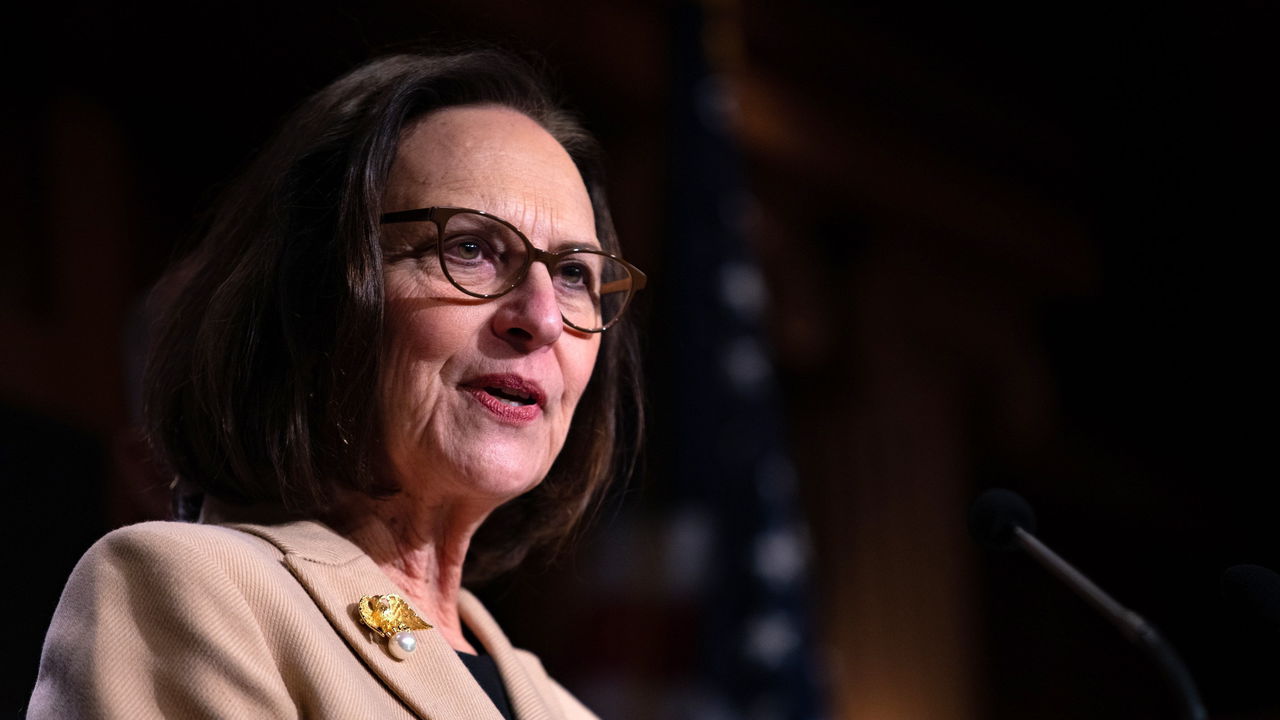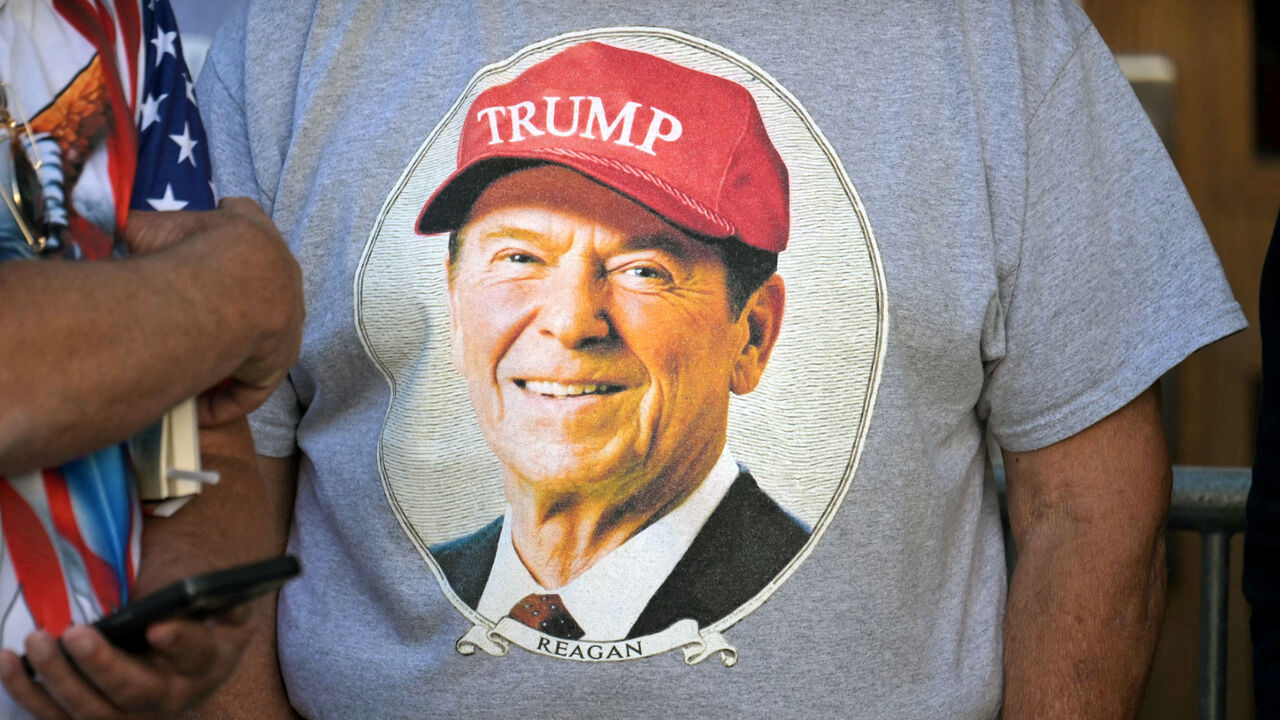REPUBLICANS HAVE won control of the Senate, a victory with big ramifications for policy and power in Washington no matter who ultimately wins the presidential contest between Donald Trump and Kamala Harris, where Mr Trump has taken a clear lead.
It became evident that Republicans would control the upper chamber after the party’s candidate in West Virginia quickly flipped a seat held by former Democrat Joe Manchin, which had been long expected. Then networks called the Ohio Senate race—the most expensive in the nation—for Republican Bernie Moreno, who unseated Sherrod Brown, the Democratic incumbent. They secured their 51st seat when Deb Fischer (pictured), a Republican senator in Nebraska, fended off a surprisingly strong challenge from Dan Osborn, an independent.
Democrats’ attempts to flip Republican seats in Texas and Florida failed. As the night wore on, Republicans remained competitive in other close races and could contemplate how large their majority may become when all the votes are counted.
Republicans will find their win particularly satisfying after failing to retake the Senate in two consecutive close elections. Four years ago the contest came down to a pair of run-off races in Georgia, where Democratic candidates won close victories. That allowed Mr Biden to govern with his party in narrow control of the chamber, relying on Ms Harris, as the vice-president, to cast tie-breaking votes.
Republicans were even more optimistic ahead of the 2022 midterm elections. But flawed candidates lost what should have been competitive races against Democratic incumbents in Georgia, Arizona, New Hampshire and Nevada. The Republicans also lost an open seat in Pennsylvania, after John Fetterman bested Mehmet Oz, a surgeon and TV personality endorsed by Mr Trump. After also under-performing against expectations in House races that year, Republican leaders decided they needed a new approach in 2024.
Steve Daines, chairman of the National Republican Senatorial Committee, aggressively intervened in primaries to weed out unimpressive candidates in favour of wealthy and telegenic nominees like Tim Sheehy in Montana and Dave McCormick in Pennsylvania. In deep blue Maryland, Larry Hogan, the popular former Republican governor of the state, forced Democrats to commit tens of millions of dollars to a race Mr Hogan was always unlikely to win (and did not).
The price of victory was steep. In Ohio, the two major party campaigns and outside groups spent more than $500m on advertising. Meanwhile, Pennsylvania’s voters were treated to nearly $350m in unrelenting adverts for the Senate race alone, in addition to more than $400m-worth for the Trump-Harris contest. In Montana—home to just over 1m people—at least $282m was spent on advertising. Arizona, Maryland, Nevada, Texas, Minnesota and Wisconsin all became nine-figure contests.
Why were donors willing to shell out billions of dollars on just a handful of Senate races? The fate of presidencies runs through the chamber: Senators must approve more than 1,000 high-ranking jobs from cabinet officers to generals and ambassadors. New federal judges—including those pegged for the Supreme Court—also require Senate endorsement.
Republican control could be a moderating force if Mr Trump is re-elected. The Senate has welcomed more right-populist Republican members like Mr Moreno in recent years, but still remains a bastion of pre-Trump conservatism. A narrow Republican majority in the Senate could empower moderates to reject Trump nominees outside the political mainstream.
Nothing united Republicans during Mr Trump’s first term quite like his judicial nominations. He enjoyed a Republican-controlled Senate for four years and the body approved 234 of his nominees, including three Supreme Court justices. If he wins, it is plausible that an outright majority of the high court will have been chosen by Mr Trump by the time his second term ends.
Should Ms Harris pull out a late victory, she would struggle to seat a Supreme Court justice so long as the Republicans control the upper chamber. How Republicans would handle lower-court nominees—or even a moderate and older Supreme Court pick—remains an open question. Mitch McConnell, the Republicans’ departing Senate leader, showed in 2016 that the party can obstruct Democratic judicial picks and weather the political backlash.
Mr McConnell, however, will not be leading Republicans next year. On November 13th the Senate will vote in what is currently a three-way race to replace him. John Thune, a South Dakotan and current McConnell leadership deputy, is the frontrunner and recently won a valuable endorsement from Mr Daines. John Cornyn of Texas represents Mr Thune’s biggest threat. Rick Scott of Florida is running a longshot race from the right.
Mr Thune, an establishment figure close to Mr McConnell, once had a rocky relationship with Mr Trump but has since patched it up. He served alongside Ms Harris when she was a senator, but the vice-president did not form any notable bipartisan relationships during her four years in the upper chamber. Mr Thune may not be a pugnacious populist, but he will no doubt be ready for a confrontational relationship if Ms Harris takes the White House.
Key provisions of Mr Trump’s 2017 tax-cutting law will expire absent legislative action next year. Negotiations have yet to begin in earnest, but some battle lines already are being drawn. A Republican-controlled Senate is likely to fight to keep a contentious cap on tax deductions in high-tax states. Whether Ms Harris or Mr Trump wins, the Senate will also have a say on whether to expand the child tax credit; whether to increase or cut corporate and individual rates; whether to fulfil campaign promises such as removing taxes on tips; and myriad other provisions. The final result will come down to presidential priorities and whether Democrats or Republicans control the House (and by how much).
There are other looming fights where a Republican-controlled Senate could be decisive. Amidst recurring fights over America’s debt limit, the lame-duck Congress could pass another in a succession of short-term government funding bills, but at some point in 2025 Congress will be responsible for a proper budget. Republicans agonised over these fiscal matters for much of 2023 and 2024. And the Senate Armed Services Committee will now be led by a Republican who wants to increase defence spending to 5% of GDP—something that neither Ms Harris nor Mr Trump necessarily wants.
If Mr Trump wins the electoral college, a sizeable Senate majority and likely control of the House of Representatives would endow Mr Trump with plenty of political capital. How to spend it would be a subject of factional arguments. But the direction of travel would be clear.■

 Personal Finance1 week ago
Personal Finance1 week ago
 Blog Post1 week ago
Blog Post1 week ago
 Economics5 days ago
Economics5 days ago
 Economics1 week ago
Economics1 week ago
 Accounting6 days ago
Accounting6 days ago
 Personal Finance1 week ago
Personal Finance1 week ago
 Economics6 days ago
Economics6 days ago
 Personal Finance5 days ago
Personal Finance5 days ago




















